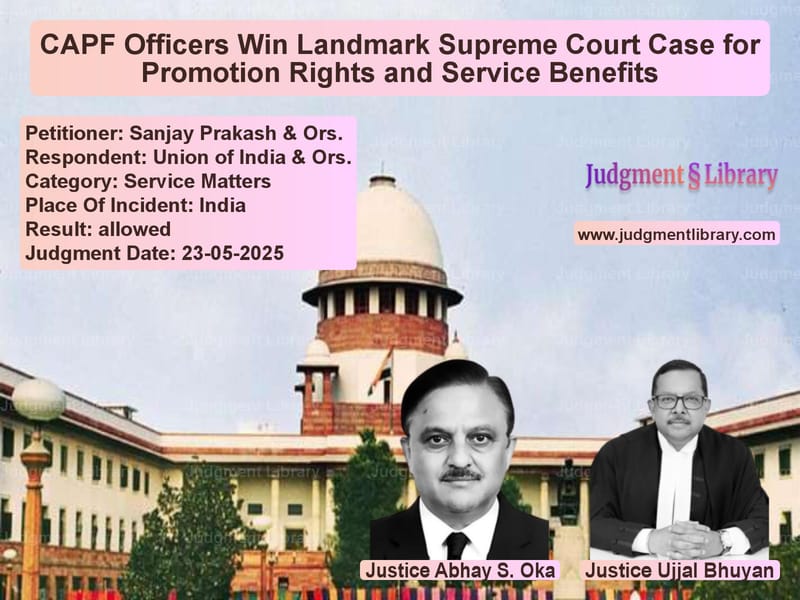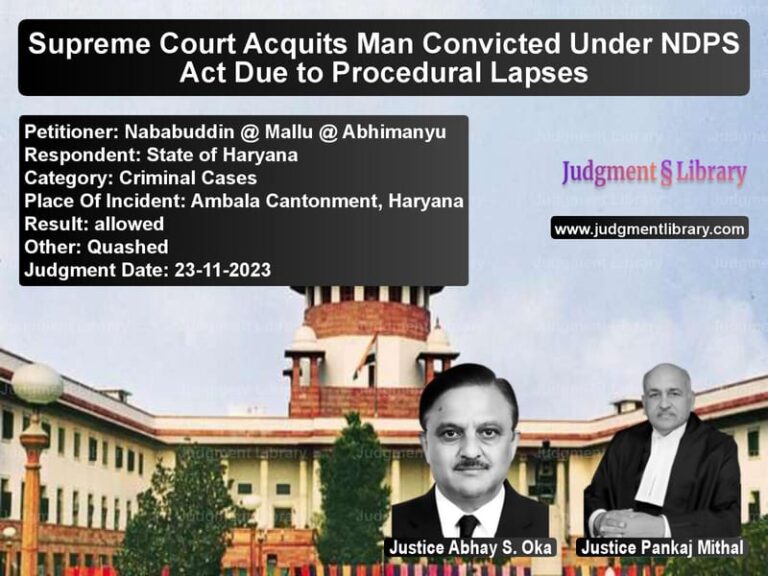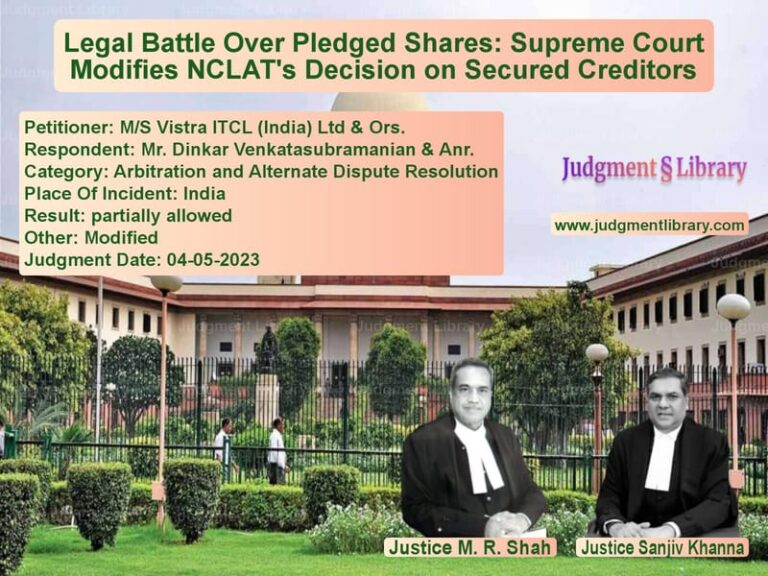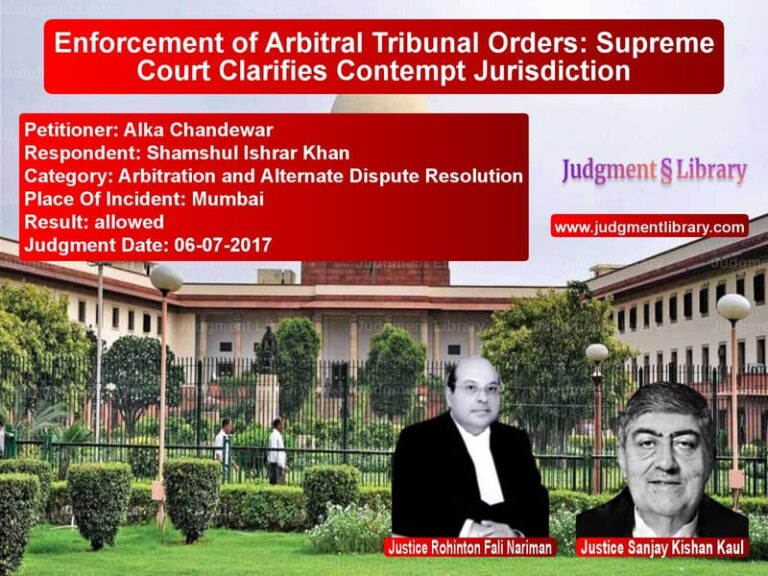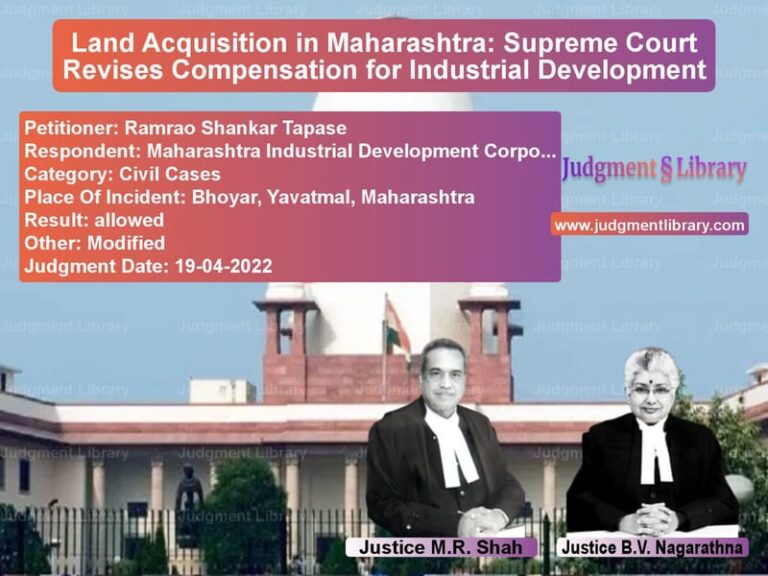CAPF Officers Win Landmark Supreme Court Case for Promotion Rights and Service Benefits
For over a decade, thousands of officers serving in India’s Central Armed Police Forces have been fighting a legal battle for recognition of their service rights and promotional opportunities. These officers, who guard our borders and maintain internal security under challenging conditions, found themselves facing career stagnation while watching deputationists from other services occupy senior positions in their own forces. The recent Supreme Court judgment has finally brought them the justice they’ve been seeking for years.
The legal journey began when officers from various CAPFs including CRPF, BSF, CISF, ITBP, and SSB approached the courts seeking declaration that their forces should be treated as Organized Group A Services (OGAS), which would entitle them to benefits like Non-Functional Financial Upgradation (NFFU) and better promotional avenues. Their core grievance was that despite their forces being repeatedly recognized as OGAS in government documents since 1986, they were being denied the full benefits of this status.
The Supreme Court’s landmark judgment in Harananda case became the turning point in this legal battle. The Court made several crucial observations that formed the foundation for the current case. “Considering the material on record, more particularly, the Monographs published by the DoPT right from 1986 till date, CAPFs have been shown to be a part of the Central Group A Services. CAPFs have been shown as a part of the Central Group A Services after conducting the exercise of cadre review, etc. by the DoPT. Therefore, all throughout from 1986 till date, in the Monographs published by the DoPT, CAPFs have been shown to be a part of Central Group A Services. Therefore, thereafter it would not be open for the DoPT not to consider and/or treat the CAPFs as an Organised Group A Services.”
The Court further solidified this position by stating: “Considering the aforesaid facts and circumstances and the material on record, which came to be considered by the High Court in detail, it cannot be said that CAPFs do not constitute Organised Group A Central Civil Services/Group A Central Civil Services.”
Following this judgment, the Department of Personnel and Training (DoPT) issued a crucial office memorandum on July 12, 2019, which explicitly stated: “The RPF and Group A Executive Cadres of the following CAPFs having been treated as Organised Group A service (OGAS) by this Department for cadre review and other related matters accordingly.” This included all five major CAPFs: CRPF, BSF, CISF, ITBP, and SSB.
Despite this clear recognition, the officers continued to face challenges in getting their service conditions aligned with OGAS standards, particularly regarding promotional avenues and reduction of deputation posts. This led to the current batch of appeals before the Supreme Court.
The petitioners, represented by senior advocates including Mr. Dushyant Dave and Mr. Shyam Divan, made compelling arguments about the injustice faced by CAPF officers. Mr. Dave argued that “once they are declared as OGAS, all the attributes of the cadre ought to be uniformized in the subsequent cadre review in accordance with the OM dated 19.11.2009 which specifically states that cadre posts of OGAS expressly belong to that service; therefore, no deputation is allowed in such a service.”
He passionately highlighted the sacrifices of these officers, stating that “more than 18,000 officials of CAPFs have been fighting this litigation and waiting for justice since 2009. They are performing their duties in the service of this country under most demanding and hostile conditions. Over 153 of them have laid down their lives for defending the unity and integrity of this country while discharging their duties.”
The petitioners presented detailed data showing how deputation of IPS officers was blocking promotional avenues for cadre officers. For instance, in CISF, while there were 153 cadre officers from batches 1987-2005, 140 of them were stagnating due to lack of vacancies caused by deputation posts. The percentage of deputation posts increased as one moved up the hierarchy – 100% at Director General level, 75% at Additional DG level, and 50% at Inspector General level.
On the other side, the Union Government represented by Additional Solicitor General Ms. Aishwarya Bhati argued that the earlier judgments only entitled CAPF officers to NFFU benefits and not to all attributes of OGAS. She contended that “the present batch of appeals are nothing but an attempt to reagitate the same grievance by seeking to inject the six attributes in terms of the DoPT OM dated 19.11.2009 into the CAPFs.”
The government emphasized the functional requirements of CAPFs, arguing that “IPS officers are important part of this hierarchy. Since CAPFs are deployed in various states, IPS officers are essential for the effective operation of CAPFs facilitating cooperation with the concerned State Governments and their respective police forces thus preserving the federal structure.”
After considering all arguments, the Supreme Court bench comprising Justice Abhay S. Oka and Justice Ujjal Bhuyan delivered a balanced judgment that acknowledged both the legitimate demands of the CAPF officers and the operational requirements of the forces.
The Court recognized the crucial role of CAPFs, noting that “their dedicated service upholding the security, integrity and sovereignty of the nation while safeguarding our borders and maintaining internal security within the country cannot be ignored or overlooked. They discharge their duties under very demanding conditions.”
The Court also acknowledged the genuine grievance of stagnation, observing that “because of lateral entry into the higher grades of the respective CAPFs, they are unable to get their timely promotion. Consequently, there is a great deal of stagnation. Such stagnation can adversely impact the morale of the forces.”
In its final directions, the Supreme Court ordered that the cadre review due in 2021 should be carried out within six months. The Ministry of Home Affairs was directed to give effect to the DoPT OM dated July 12, 2019 and undertake review of existing service rules/recruitment rules of each CAPF within six months, giving representatives of cadre officers an opportunity of being heard.
Most significantly, the Court directed that “the number of posts earmarked for deputation in the cadres of the CAPFs upto the level of Senior Administrative Grade (SAG) should be progressively reduced over a period of time, say within an outer limit of two years.”
This judgment represents a major victory for CAPF officers who have long sought parity with other organized services. It acknowledges their sacrifices and service to the nation while providing a framework for addressing their career progression concerns. The directions for progressive reduction of deputation posts will ensure that dedicated cadre officers who have spent their careers serving in these forces get adequate opportunities to rise to leadership positions.
The Supreme Court’s balanced approach recognizes both the operational needs of having some deputationists for coordination purposes and the legitimate career aspirations of cadre officers. By giving a two-year timeframe for reducing deputation posts up to SAG level, the judgment allows for a smooth transition that doesn’t disrupt the functioning of these crucial security forces.
This case highlights the importance of timely cadre reviews and updating of recruitment rules to address the evolving needs of our security forces. It also serves as a reminder that those who dedicate their lives to protecting the nation deserve fair treatment in their service conditions and career progression. The implementation of these directions will not only benefit the current officers but will also make careers in CAPFs more attractive for future generations, ultimately strengthening our national security apparatus.
Petitioner Name: Sanjay Prakash & Ors..Respondent Name: Union of India & Ors..Judgment By: Justice Abhay S. Oka, Justice Ujjal Bhuyan.Place Of Incident: India.Judgment Date: 23-05-2025.Result: allowed.
Don’t miss out on the full details! Download the complete judgment in PDF format below and gain valuable insights instantly!
Download Judgment: sanjay-prakash-&-ors-vs-union-of-india-&-ors-supreme-court-of-india-judgment-dated-23-05-2025.pdf
Directly Download Judgment: Directly download this Judgment
See all petitions in Promotion Cases
See all petitions in Employment Disputes
See all petitions in Public Sector Employees
See all petitions in Recruitment Policies
See all petitions in Judgment by Abhay S. Oka
See all petitions in Judgment by Ujjal Bhuyan
See all petitions in allowed
See all petitions in supreme court of India judgments May 2025
See all petitions in 2025 judgments
See all posts in Service Matters Category
See all allowed petitions in Service Matters Category
See all Dismissed petitions in Service Matters Category
See all partially allowed petitions in Service Matters Category

